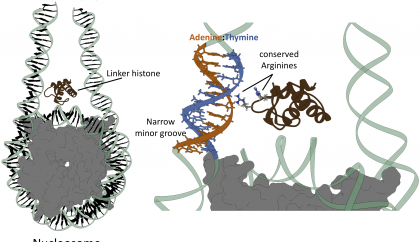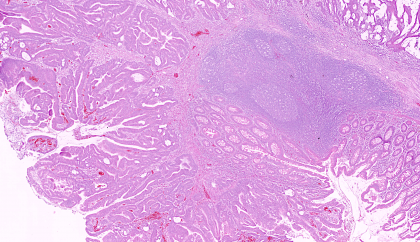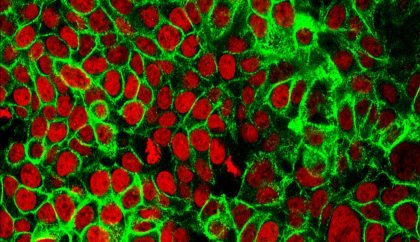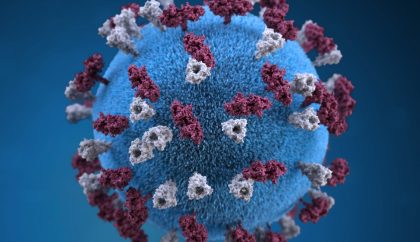
It’s in the DNA: sequence recognition by the linker histone
Using single-pair FRET (Fluorescence/Förster Resonance Energy Transfer) spectroscopy and computational modeling, Madhura De, researcher in the Molecular and Cellular …

Computational Oncology: Exploring the origin of Colon Cancer
Colon cancer is one of the most common cancers in men and women worldwide. Due to the microscopic size of the …

Using Bioinformatics algorithms to predict the European Football Championship
Researchers from the Computational Molecular Evolution (CME) group at HITS have simulated the knock-out phase of the European Football Championship using …

Investigating cancer development with the help of mathematics
Scientists from Heidelberg have found a way to trace cancer formation using mathematical models. The results have now been published in …

The good, the bad, and the spaghetti code: Software put to the test
Computer scientists at HITS and KIT Karlsruhe have developed “SoftWipe”, a largely automated open source tool and benchmark to assess the …

Traps and code: assessing insect biodiversity in Southern Crete
HITS group leader Alexandros Stamatakis (Computational Molecular Evolution) is one of the coordinators in a citizen science project to asses insect …

Putting computing power together against SARS-CoV-2
European scientists identified potent inhibitors of the SARS-CoV-2 main protease, a promising target for antiviral compounds.

Corona variants: Tackle the bioinformatics bottleneck!
In the light of fast-spreading coronavirus variants, genomic surveillance has become of great importance to fight the pandemic. In a …

How can we rely on AI?
Statisticians from HITS, KIT, and Heidelberg University introduce the new “CORP” approach to better determine the reliability of forecasting methods. CORP …

104 minutes of science
In an online conversation, Casey Dunn, Professor of Ecology and Evolutionary Biology at Yale University, and HITS group leader Alexis Stamatakis …